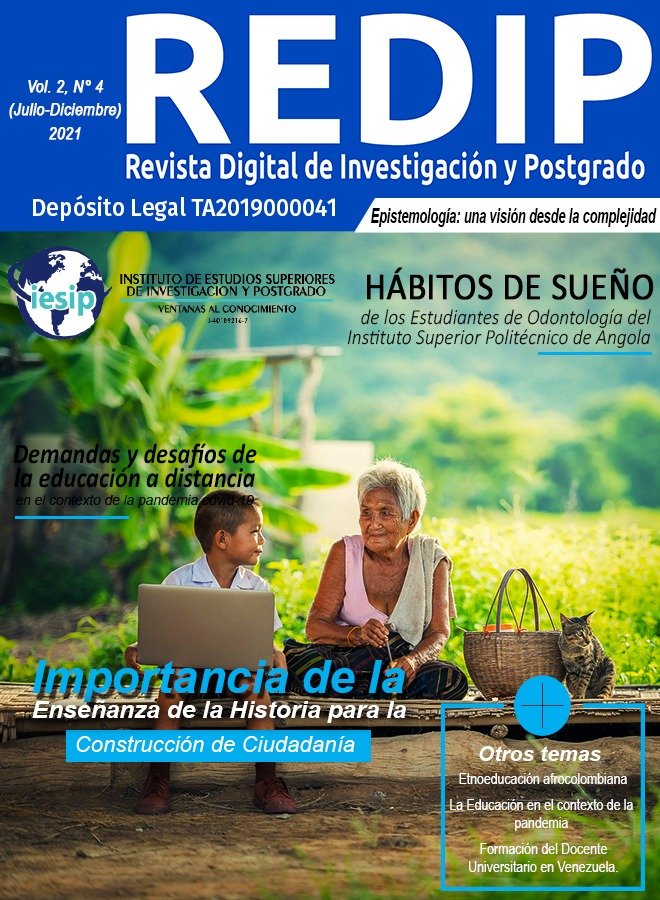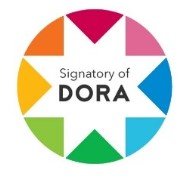The Importance of History Education for Citizenship Building
DOI:
https://doi.org/10.59654/4eww1048Keywords:
Teaching of history, historiography, and construction of citizenship.Abstract
This article in a certain way gives an account of a study related to the teaching and learning of history through the use of emerging pedagogies; In this sense, it was proposed as a fundamental objective to analyze the importance of the teaching of history in basic secondary education in the educational institutions of the Piedecuesta municipality of the department of Santander, Colombia as a means for the construction of citizenship. Teachers in the teaching of history, in their pedagogical practice, adhere to a historiographic current; Some are attached to Marxism, they stimulate the logical reasoning and critical thinking of the students; others are related to historical positivism
and there is a group of teachers who do not fall into the previous typologies, therefore, they adopt an eclectic typology. The teaching of history currently faces a complex challenge when moving from the traditional paradigm to a constructivist, innovative paradigm, which is committed to the development of students' historical thinking from a critical perspective. The conception of citizenship in recent years has
experienced a true boom within the academic field, being one of the objects most approached in the studies of the social and human sciences, especially in education. The progressive displacement of the centers of power, among other aspects, has influenced the configuration of new scenarios as spaces for the exercise of citizenship. The work of the teacher takes on a special relevance and commitment, in the training of children and young people; and the teaching of history as well as the construction of citizenship must become fundamental elements in the context of their integral formation.
Downloads
References
Aldana, T. (2010). Educación para la ciudadanía y educación ambiental: una articulación necesaria. Ponencia presentada en el Congreso Iberoamericano de Educación. Con- greso Iberoamericano de Educación. Metas 2021 (págs. 1-9). Ficad. http://www.ficad.org/lecturas/lectura_cuatro_unidad_ocho_eca.pdf.
Audigier, F. (1999). L’éducation à la citoyenneté. INRP.
Carretero, M. y Guimerá, R. C. (1991). Práctica docente y pensamiento del profesor de Historia de Secundaria (Tesis doctoral inédita): Estudio General de Lleida.
Carretero, M. y Kriger, M. (2004). ¿Forjar patriotas o educar cosmopolitas? El pasado y el presente de la historia escolar en un mundo global. En M. Carretero y J. Voss (Eds.), Aprender y pensar la historia (pp. 71-98): Amorrortu.
Chapman, A. (2011). Taking the perspective of the other seriously? Understanding his- torical argument. Educar em Revista, 42, 95-106. https://www.google.com/url?sa=t&rct=j&q=&esrc=s&source=web&cd=&cad=rja&uact=8&ved=2ahUKEwiRiOnupMaBAxVPRzABHYDaDQEQFnoECB4QAQ&url=https%3A%2F%2Fwww.scielo.br%2Fj%2Fer%2Fa%2FDMc6QfpngbNc7NQjLT3brcS%2F%3Flang%3Den&usg=AOvVaw3djtzHoz0wRqZgne07Ax17&opi=89978449
Clark, P. (Ed.) (2011). New possibilities for the past. Shaping history education in Ca- nada UBC Press.
Dewey, J. (2004). Democracia y Educación: Una Introducción a la Filosofía de la Educa- ción: Morata.
Gagnon, F. y Pagé, M. (1999): Cadre conceptuel d’analyse de la citoyenneté dans les démocraties libérales. Vol. I: Cadre conceptuel et analyse. Direction du Multicultu- ralisme, Direction de la Participation des citoyens, Recherche et analyse stratégiques (RAS). Ministère du Patrimoine Canadien.
Giroux, H. (2003). La escuela y la lucha por la ciudadanía. Siglo XXI.
Gómez, C. J., Ortuño, J. y Molina, S. (2014). Aprender a pensar históricamente. Retos para la historia en el siglo XXI. Tempo e Argumento, 6(11), 5-27. https://www.redalyc.org/pdf/3381/338131531002.pdf
Gómez, C. J. y Rodríguez, R. (2014). Aprender a enseñar ciencias sociales con métodos de indagación. Los estudios de caso en la formación del profesorado. REDU. Revista de Docencia Universitaria, 12(2), 307-325. https://www.google.com/url?sa=t&rct=j&q=&esrc=s&source=web&cd=&cad=rja&uact=8&ved=2ahUKEwjvndSdpcaBAxV7TTABHTTBASkQFnoECBAQAQ&url=https%3A%2F%2Fdialnet.unirioja.es%2Fservlet%2Farticulo%3Fcodigo%3D4845500&usg=AOvVaw1R67Izu--atmFNUTcfvrZh&opi=89978449
Gómez, C. C.J., Rodríguez-Pérez, R.A. y Mirete, A.B. (2018). Metodología didáctica y concepciones epistemológicas sobre la enseñanza de la historia. Una investigación con futuros Maestros. Revista Complutense de Educación, 24(1), 237-250.
Imbernón, F. (2002). Cinco ciudadanías para una nueva educación: Graó.
Lévesque, S. (2008). Pensando históricamente. Educar a los estudiantes para el siglo XXI: Prensa de la Universidad de Toronto.
Pérez, S. (2008). ¿Por qué enseñamos geografía e historia? ¿Es tarea educativa la cons- trucción de identidades? Historia de la educación, 27, 37-55.
Prats, J. y Santacana, J. (2011). ¿Por qué y para qué enseñar historia? En J. Prats (Coord.), Didáctica de la Geografía y la Historia (pp. 13-29). Graó.
Prieto, D. y Pérez, F. (2021). La enseñanza de la historia en las aulas: un tema para re- flexionar. Revista Debates por la Historia, 9(1), 129-154.
Seixas, p. y Morton, T. (2013). Los seis grandes conceptos del pensamiento histórico: Nelson.
Schmidt, M. A. (2017). ¿Qué hacen los historiadores cuando enseñan la Historia? Contribuciones de la teoría de Jörn Rüsen para el aprendizaje y el método de enseñanza de la Historia. Clio &asociados. La historia enseñada, (24), 26-37.
Téllez, I. (2020). El tratamiento de historia local en los escolares de la educación pri- maria. Revista Electrónica de Psicología Iztacala, 23(3), 871-894.
Touraine, A. (1995). ¿Qué es la democracia? Fondo de Cultura Económica.
Valencia, D. (2010). Dispositivos de poder y mayorías durante la era Uribe. Una mirada a los procesos de socialización. Escenarios, 40-45.
Wineburg, S. (2001). Historical Thinking and Other Unnatural Acts. Charting the Future of Tea- ching the Past. Temple University Press.
White, H. (1992). El contenido de la forma. Paidós.
Downloads
Published
Issue
Section
License
Copyright (c) 2024 Revista Digital de Investigación y Postgrado

This work is licensed under a Creative Commons Attribution-NonCommercial-ShareAlike 4.0 International License.
Esta licencia permite a los reutilizadores distribuir, remezclar, adaptar y desarrollar el material en cualquier medio o formato únicamente con fines no comerciales, y solo siempre que se atribuya al creador. Si remezclas, adaptas o construyes sobre el material, debes licenciar el material modificado bajo términos idénticos. CC BY-NC-SA incluye los siguientes elementos:
![]() POR: se debe dar crédito al creador.
POR: se debe dar crédito al creador.![]() NC: Sólo se permiten usos no comerciales de la obra.
NC: Sólo se permiten usos no comerciales de la obra.![]() SA: Las adaptaciones deben compartirse en los mismos términos.
SA: Las adaptaciones deben compartirse en los mismos términos.











